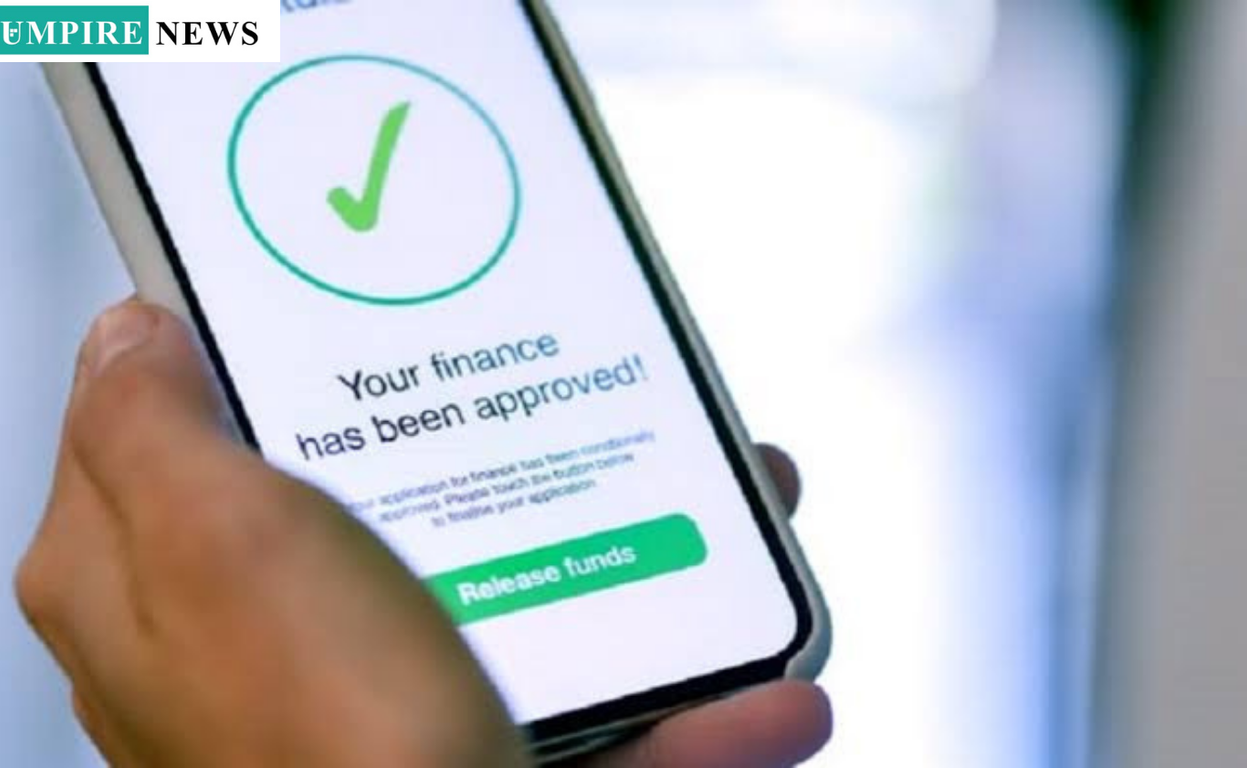The Federal Government’s consumer credit initiative, spearheaded by the Nigeria Credit Corporation (CREDICORP), is rapidly gaining momentum, with the structure of interest rates and repayment terms emerging as much more favorable compared to those offered by existing digital lending platforms.
This initiative, which promises to revolutionize the consumer credit landscape, aims to provide more affordable access to credit for working-class Nigerians, beginning with civil servants and expanding to the general public.
According to reports, the interest rates on loans offered under this government-backed scheme range from as low as 4% monthly to a maximum of 22% annually.

This stands in stark contrast to the current rates charged by digital lenders, which can climb as high as 10% monthly and up to a staggering 120% annually.
The significant difference in interest rates highlights the government’s intent to create a fairer, more accessible credit environment for the Nigerian populace.
The initiative has already made considerable progress, starting with the disbursement of funds to civil servants.
Data from CREDICORP indicates that approximately N3.5 billion has already been distributed within a matter of days to thousands of beneficiaries.
This initial phase of the scheme, focused on civil servants, sets the stage for the broader rollout, which will soon encompass the general working public.
Accion Microfinance Bank and Abbey Mortgage Bank, two of the financial institutions partnering with CREDICORP, have confirmed that their loan facilities are now open to working-class Nigerians.
These financial institutions, along with FCMB’s Credit Direct, Wema Bank, and Letshego Microfinance Bank, form the backbone of the scheme’s lending arm.
Together, they are working to provide consumer loans to a wider audience under the federal government’s program.
Consumer Credit Interest Rates Breakdown
Speaking with Journalists, a customer service representative from Accion Microfinance Bank named Charles provided details about the loan options available under the scheme.
Applicants can access loans ranging from N50,000 to N1 million, with a monthly interest rate of 4%. Loan terms range from a minimum of four months to a maximum of 12 months.

However, unlike the instant disbursement model favored by digital lenders, Charles noted that it takes approximately three days for loans to be processed under this scheme.
Applicants are required to be working-class individuals and must provide proof of employment.
They must also have been employed with their current employer for at least six months before they can qualify for a loan under the CREDICORP program.
Similarly, Desola, a customer service agent from Abbey Mortgage Bank, revealed that their institution had just concluded the first phase of loan disbursement for civil servants and was preparing to expand the program to businesses and individuals employed in reputable organizations.
Loans from Abbey Mortgage Bank come with an annual interest rate of 20% to 22% and a repayment period of one to three years.
Desola also noted that Abbey Mortgage Bank collaborates with retail lenders, such as Fast Cash, to offer these loans, as the bank itself is not licensed to provide retail loans.
Wema Bank, another participating financial institution, offers salary-based and payday loans under the CREDICORP scheme at a highly competitive monthly interest rate of 2%, as seen on the CREDICORP website.
Applicant Experiences and Feedback;
While the CREDICORP initiative has disbursed N3.5 billion to 10,942 beneficiaries within just five days of its launch, there have been complaints from some applicants regarding the pace of disbursement.
Ehwarieme Goddey, an applicant, expressed frustration over the slow process, stating that the scheme needs to onboard more financial institutions to expedite the disbursement of loans.
Goddey shared that many applicants are still awaiting their loans and that Credit Direct, the financial institution handling the civil servant disbursements, is overwhelmed.
“More Financial Institutions need to be brought in fast to make the disbursement process less cumbersome. For now, the Credit Direct is overwhelmed! I have been in the queue now for 4 days! Moreover, they (Credit Direct) don’t seem to be handling credit needs as a new initiative by CREDICORP. I’m not pleased,” Goddey said.
Femi Abdulkadri, another applicant, reported that he had applied for a loan three months ago via the CREDICORP website but had yet to receive any feedback or acknowledgment of his application.
The Impending Disruption of Digital Lending Platforms;
The introduction of the CREDICORP scheme, with its consumer-friendly interest rates, is poised to disrupt the digital lending sector, which has long been criticized for its exorbitant rates.
Industry experts predict that private digital lenders may be forced to either reduce their interest rates or risk losing a significant portion of their customer base.
Martin Joseph, CEO of Edge Financial Services, explained that while the lower interest rates under the government’s scheme are to be expected, the real challenge for digital lenders will be maintaining profitability while offering competitive rates.
He warned that these lenders, which typically charge higher rates to compensate for the risks of lending without collateral, may struggle if forced to lower their rates.
“These lenders typically charge higher interest rates to compensate for the risk of lending without collateral. As consumers gravitate toward cheaper, government-backed credit, private digital lenders may struggle to attract new borrowers or retain existing ones, unless they adjust their offerings.
“They may be forced to reduce their interest rates to remain competitive. However, this could pose challenges as these lenders often rely on higher interest rates to manage the risks associated with their loan portfolios, such as non-collateralized loans and high default rates. Lowering rates without a corresponding decrease in risk could squeeze their margins,” Joseph stated.
Meanwhile, the Chairman of the Money Lenders Association, Gbemi Adelekan, acknowledged that many digital lending platforms had applied to participate in the CREDICORP scheme but were ultimately excluded because they are not licensed by the Central Bank of Nigeria (CBN).
The Future of Consumer Credit in Nigeria;
President Bola Tinubu officially launched the first phase of the Consumer Credit Scheme on April 21, with a focus on providing credit facilities to working citizens.
According to Ajuri Ngelale, the President’s special adviser on media and publicity, the scheme aims to empower individuals by giving them access to credit for essential investments such as housing, transportation, education, and healthcare.
As the program expands, the government’s consumer credit initiative is expected to reshape Nigeria’s financial landscape, offering a more sustainable and affordable option for working-class citizens while potentially challenging the dominance of private digital lenders in the credit space.

































